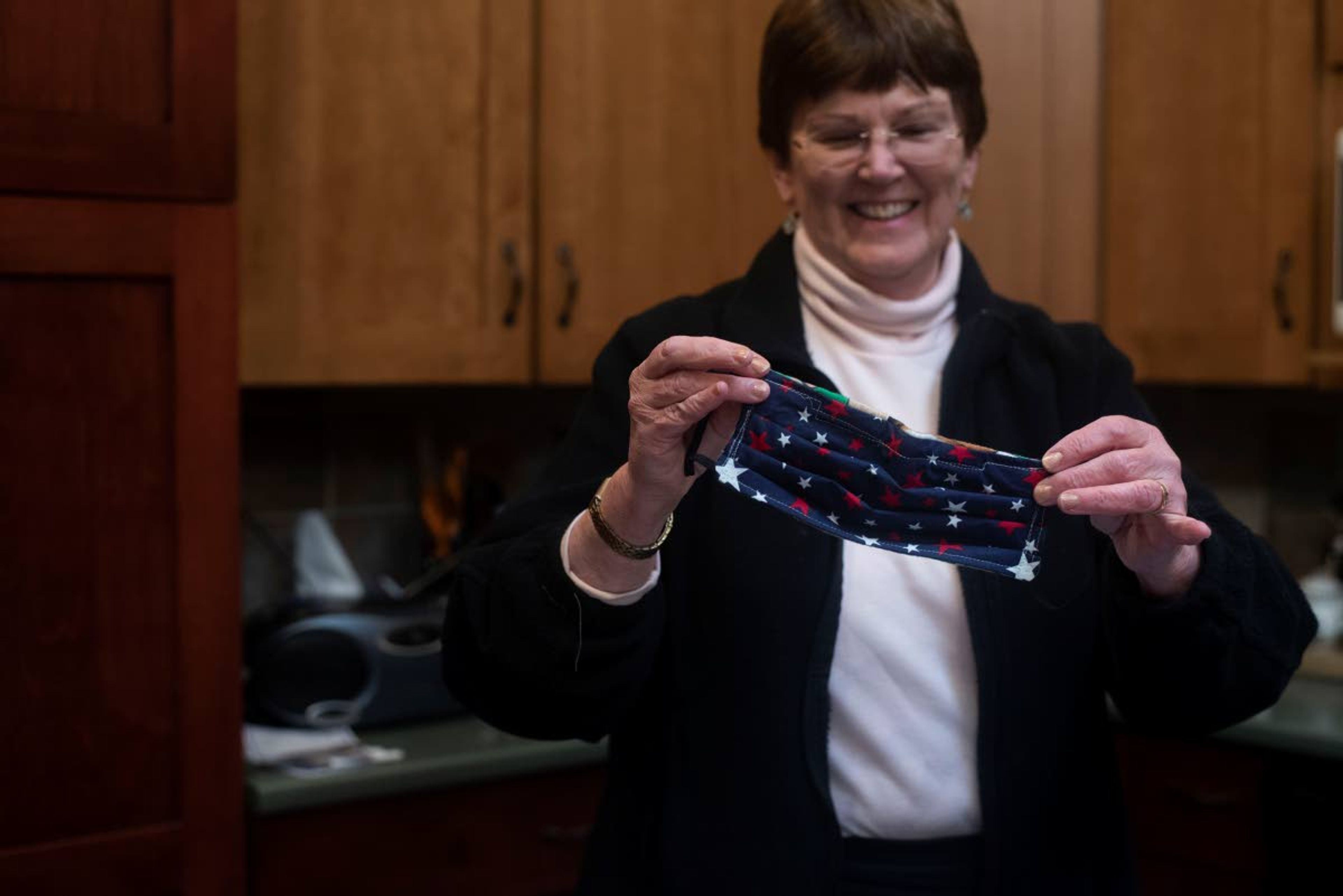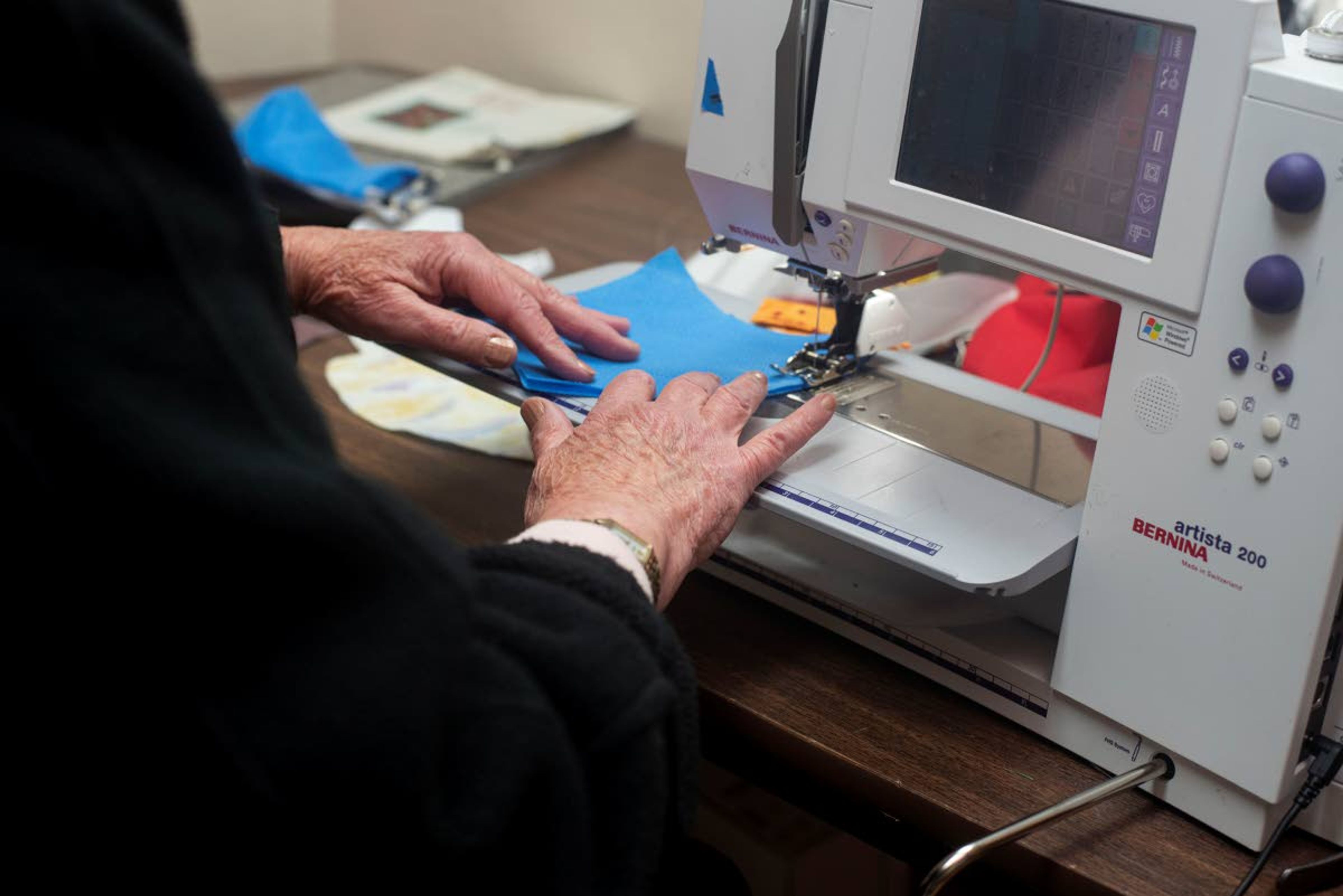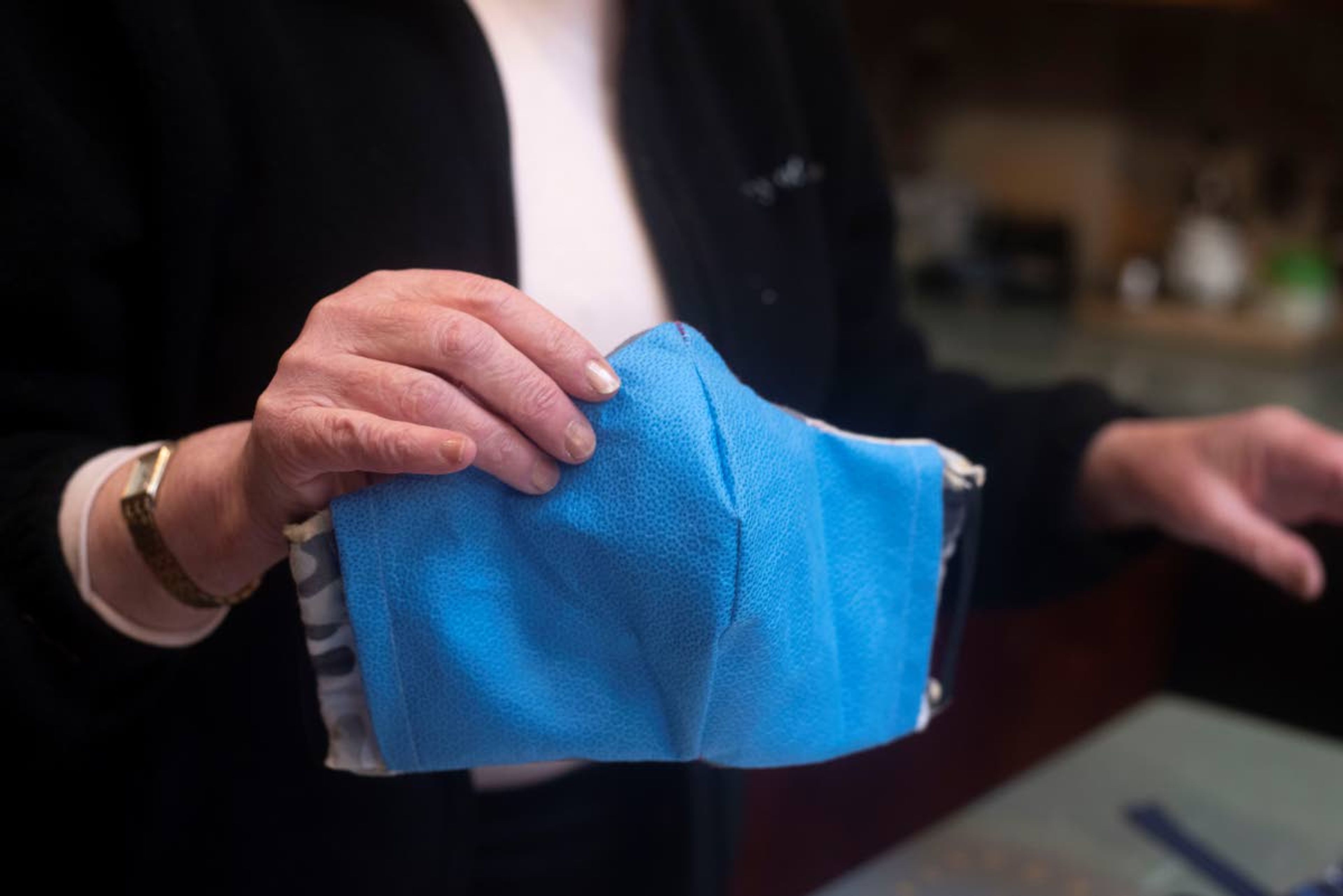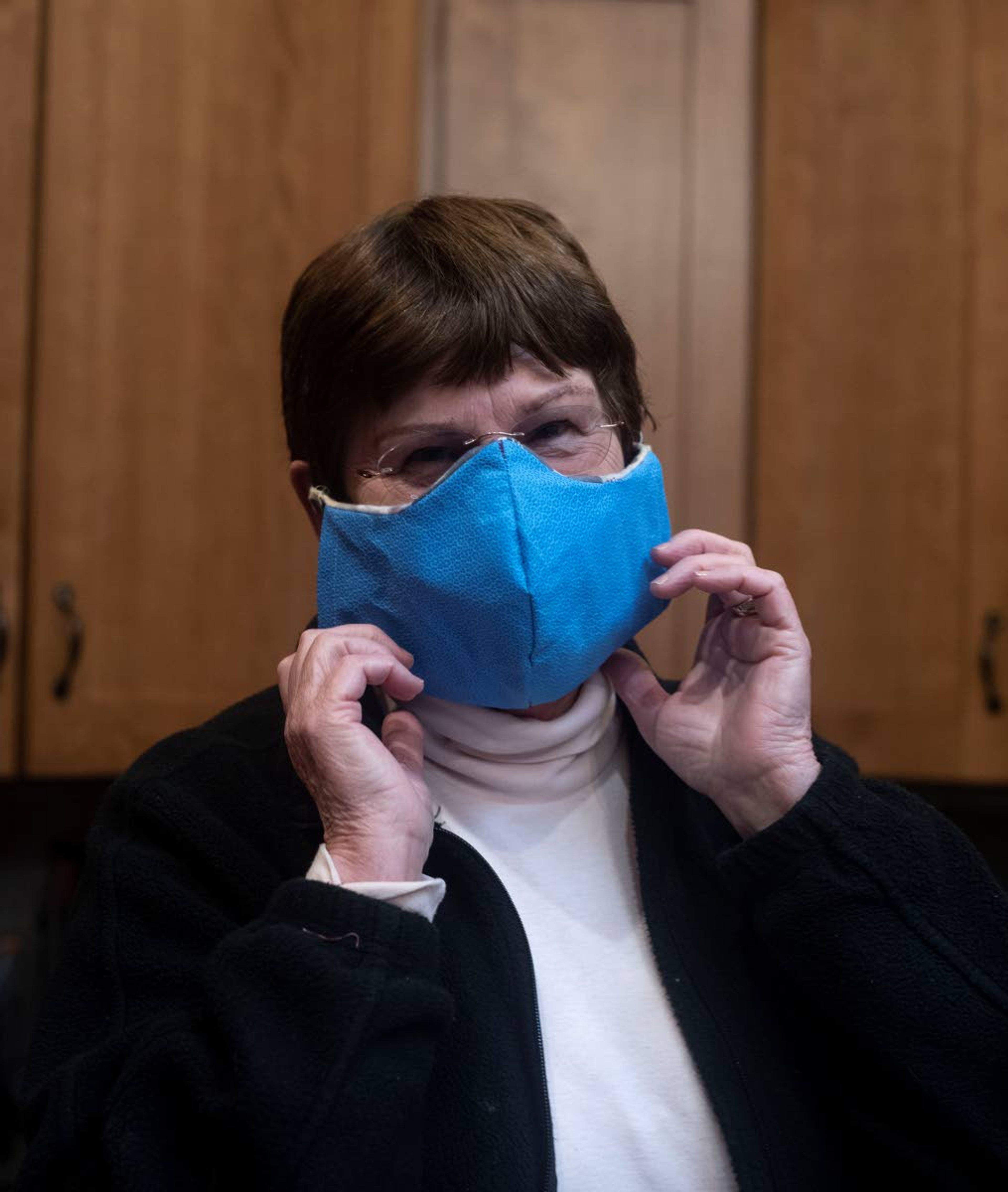Community members sew masks for hospitals
Masks will extend life of N95 masks, serve as backups
Hospitals across the country are facing facemask shortages because of COVID-19 and individuals and groups on the Palouse are pulling out their sewing equipment to help mend the problem locally.
Masks can be sewn and donated to Gritman Medical Center in Moscow and Pullman Regional Hospital.
N95 masks help protect healthcare workers from viruses like the coronavirus.
The donated cloth masks Gritman is accepting do not replace N95 masks, said Peter Mundt, Gritman director of community relations and marketing. Instead, they are used as covers for Gritman’s N95 masks to extend the life of the masks.
“That personal protective equipment is in critical shortage across the country,” Mundt said. “It’s the same for every hospital, so we’re working very innovatively and quickly to see how we can extend the possible useful life of any type of equipment that we have, and this is one way that that can happen.”
Megan Guido, PRH chief marketing and community relations officer, also said via email the community-made masks do not replace N95 masks or manufactured surgical masks but will be used as a backup if and when the hospital’s supply does not meet its need.
“We have orders in for more personal protective equipment, like the surgical masks, but manufacturers are short on supply,” Guido wrote. “The hand sewn masks would be used to supplement our current surgical masks. Additionally, they can be used for staff who are at low risk for any exposure or patients who come in with a cough. They are not necessarily up to N95 or surgical mask standards but will be helpful.”
Each hospital is asking those interested in sewing masks to follow design specifications outlined on their websites.
“We want to make sure we’re telling people to create masks that are going to be useful and are protective of our staff,” Guido said.
PRH posted a video Tuesday to its website on how to sew the masks. Within an hour, about 140 people viewed the video, Guido said.
Leslie Sprouse, president of Palouse Patchers in Moscow, said members of the quilting group are making masks for Gritman and other agencies in need.
She said the group does not have a goal for how many masks it wants to make. One member said she made about 20 and planned to drop them off at Gritman, Sprouse said.
“This is just to preempt that last-minute panic,” Sprouse said.
Sue Scott, a member of Palouse Patchers, said she is making masks because she has plenty of fabric and it gives her something to focus on while everyone is encouraged to stay home.
“It’s a give back to the community,” she said.
Sue Clark, Relief Society president of the Palouse River Ward in Moscow, said via email the women’s organization of the Church of Jesus Christ of Latter-day Saints is also pitching in to make masks.
“We are enthusiastic about this project because we care deeply about helping the helpers,” Clark wrote. “These health care workers are our friends and neighbors and they may be helping us in case of serious illness.”
To make masks for Gritman, visit gritman.org, click on “COVID-19” at the top of the page, click on “Gritman’s emergency response updates” and then hit “Community ‘sews’ seeds of love for frontline health care workers” for directions and a video on how to make the masks.
Contact Kim Malm, Gritman volunteer services coordinator, at kim.malm@gritman.org or (208) 883-5520 to coordinate production and delivery.
For PRH, visit pullmanregional.org, click on “COVID-19 FUND” for instructions and a video to learn how to make the masks.
Individuals can pick up a black bag of surgical sterile wrap to help create the masks in the vestibule at the front entrance of PRH, according to the hospital’s website. Each bag contains enough wrap for 28 masks if cut using the hospital’s directions. If making fewer than 28 masks, the remaining material can be returned to the hospital.
Guido said the wrap is key because it serves as a cover over the regular mask, keeping away droplets from sneezes and coughs.
Gritman is also accepting donated N95 and manufactured surgical masks and medical gloves. Mundt said donors can call the hospital’s main line at (208) 882-4511 to let it know they would like to donate.
PRH is accepting N95 and manufactured surgical masks, as well.
Pullman Fire Department Chief Mike Heston said his department has “comfortable levels” of N95 and surgical masks but that will change if firefighters and paramedics respond to an uptick in calls.
He said the masks the public is making for the hospitals are not ones his department would use. Heston said filters for his staff’s breathing apparatuses are expected to arrive at some point and will serve as backups to the N95 masks.
Heston also noted that the department has been receiving donated food from the public, but he said he discourages the donations because of the COVID-19 exposure risk and that the firefighters do not need food. He encouraged residents to donate food to those in need, such as people who are unable to work during the pandemic.
Garrett Cabeza can be reached at (208) 883-4631, or by email to gcabeza@dnews.com.







